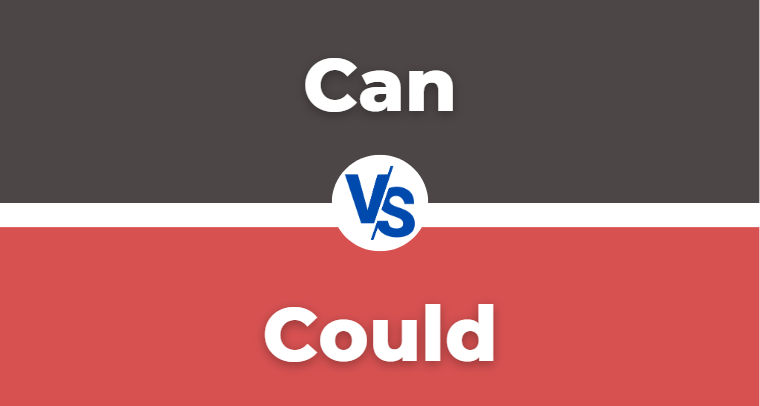We often find ourselves struggling with the correct usage of certain words. One of the most common sources of confusion is the difference between can and could. They are both modal verbs that are used to express a person’s ability, permission, or possibility to do something. However, the difference lies in their degree of politeness and formality.
Knowing when to use can vs could is crucial in making our communication clear and effective. In this blog post, we will delve into the nuances of these two words and explore different scenarios where they are appropriately used. By the end of this article, you’ll have a clear understanding of when to use can or could in your writing and speech.
What is the Difference between ‘Can’ vs ‘Could’?
Both “can” and “could” are modal verbs that express possibility, ability, permission, or suggestion. However, there are some differences between the two:
- Tense: “Can” is present tense, while “could” is past tense.
- Example: “I can speak Spanish” (present tense), vs. “I could speak Spanish when I was younger” (past tense).
- Politeness: “Could” is considered more polite than “can.”
- Example: “Can you please pass me the salt?” vs. “Could you please pass me the salt?”
- Probability: “Could” suggests a lower probability or likelihood than “can.”
- Example: “I can swim” suggests a higher level of ability or likelihood, while “I could swim if I had to” suggests a lower level of ability or likelihood.
- Conditionality: “Could” is often used in conditional or hypothetical situations.
- Example: “If I could speak French, I would apply for that job” suggests a hypothetical scenario.
Overall, “can” and “could” have similar meanings, but “could” is often used to express politeness, uncertainty, or hypothetical situations.
When to Use ‘Can’?
“Can” is a modal verb that is used to express different meanings in different contexts. Here are some common ways to use “can”:
- Ability: Use “can” to express that someone has the skill or ability to do something.
- Example: “I can swim” means that you have the ability to swim.
- Permission: Use “can” to ask for or give permission.
- Example: “Can I borrow your pen?” or “You can go home early today.”
- Possibility: Use “can” to express that something is possible.
- Example: “It can rain later today” means that there is a possibility of rain.
- Requests: Use “can” to make requests informally.
- Example: “Can you help me with this project?”
- Offers: Use “can” to offer help or assistance.
- Example: “Can I help you carry those bags?”
It is worth noting that “can” is present tense, so it is used to describe actions or events in the present or future. Additionally, when using “can,” the verb that follows is always in the base form (infinitive) without “to.” For example, “I can swim” not “I can swim.”
When to Use ‘Could’?
“Could” is a modal verb that is used to express different meanings in different contexts. Here are some common ways to use “could”:
- Past ability: Use “could” to express that someone had the ability to do something in the past.
- Example: “When I was younger, I could run faster.”
- Polite requests: Use “could” to make polite requests.
- Example: “Could you please pass the salt?”
- Suggestions: Use “could” to make suggestions or offer advice.
- Example: “You could try calling him again later.”
- Hypothetical situations: Use “could” to describe hypothetical or imaginary situations.
- Example: “If I could travel anywhere in the world, I would go to Japan.”
- Possibility: Use “could” to express that something is possible.
- Example: “It could rain later today.”
Wrapping up
In conclusion, mastering the usage of the can and could in English grammar is an essential skill that can greatly enhance our communication abilities. While these two modal verbs may seem interchangeable, their nuances of politeness and formality can significantly impact the clarity and effectiveness of our message.
By understanding the appropriate scenarios where can and could are used, we can confidently express our abilities, permissions, and possibilities in a way that accurately reflects our intentions while adhering to the conventions of proper English grammar. So, whether you’re writing an academic paper or having a conversation with a friend, remember to use can and could appropriately to make your language clear and effective.
